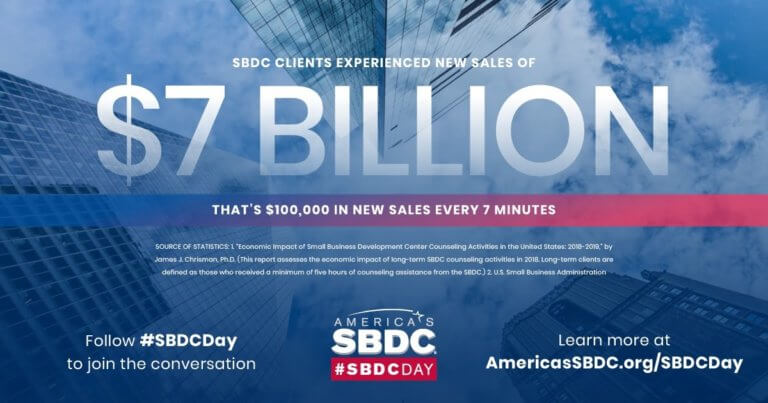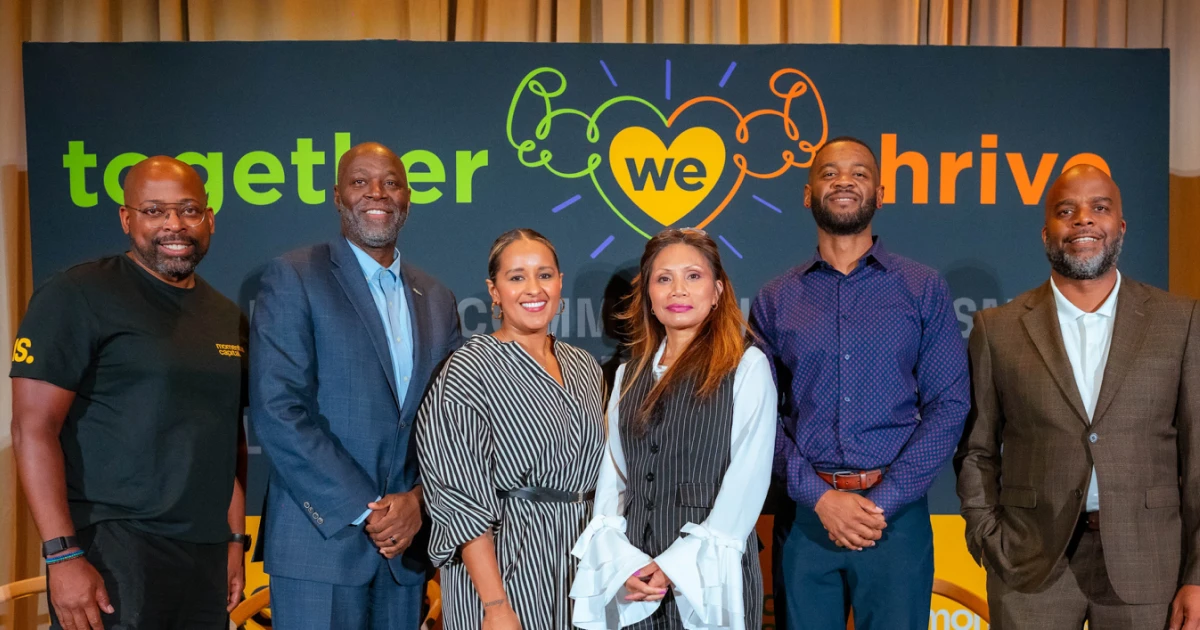Many small business owners are not aware of what the SBDC is and how resourceful they can be. The Small Business Development Center (SBDC) is a network of resources designed for entrepreneurs, start-ups, and small business owners.
There are nearly 1000 SBDC’s across America that are designed to help small businesses with all kinds of business-related activities like guidance with finance and marketing.
The SBDCs are run by the U.S Small Business Administration (SBA) in partnerships with state economic development agencies, private partners, and local communities.
THE POWER OF SBDCs
– 1,000 centers in the U.S.
– Clients launched 20,374 new businesses in 2020
– Advising led to creation of 91,000+ jobs in 2020
What’s a small business development center?
The SBDC is a community resource that offers one-on-one counseling, along with classes and workshops on a wide variety of business topics.
They can focus on the fundamentals, such as advice on how to get started, but they also delve more deeply into questions about financing, accounting, growth management and more.
As Sudershan Shaunak, director of the North San Diego SBDC says, his staff and counselors help owners and entrepreneurs “take their business to the next level.”
The SBDC serves as a resource to help those who are just starting out or to small business owners who are looking to grow their business.
How do SBDCs work?
Small Business Development Centers are each tailored to their community and run in conjunction with their local governments and work with other resources in their surrounding areas.
The staff at the SBDCs is also local to their community. They have paid staff and can be staffed with volunteers from local banks, trade associations, and the Service Corps of Retired Executives (SCORE).
Having a very localized focus allows for each of these communities to receive more help and resources for the businesses that need it most.
How They Help Small Businesses
Being a small business owner means that there are several areas where your attention has to go at once, however you may not be an expert in all of these areas.
SBDCs fill this gap by providing business owners with training sessions with experts in areas that may be unfamiliar or where they may need extra help. Some of these areas include:
- Marketing
- Assisting with getting financing for the business
- Best practices for hiring employees
- Production
- Implementing technology
- Understanding and filing small business taxes
- Helping business owners with organization skills
What’s the impact of an SBDC?

Nationally, according to America’s SBDC, clients in 2020 logged annual sales growth of $7 billion. The nearly 18% growth rate is more than four times the national average.
Those who received SBDC guidance launched 20,374 new businesses, while creating more than 91,767 jobs.
They served 510,707 clients, 51% being women, 27.5% being minorities, and 5% being veterans. One group of centers, in San Diego and Imperial Counties, served nearly 4,400 clients last year, and $103 million in disaster capital due to SBDC assistance.t. Officials estimate their 100% online guidance helped clients access over $200 million in government programs like Meet the Buyers.
Do they have special programs?
Yes. Some SBDC centers focus on the needs of women, veterans and people of color, offering a similar mix of counseling, workshops and courses.
In addition, in the event of an emergency, SBDCs coordinate with the Federal Emergency Management Agency and state offices to operate Business Recovery Centers in affected communities.
They also host special events on hot topics in small business, from cybersecurity to opportunities in rural areas.
What’s the cost for SBDC services?
Mostly free, but low cost when a fee applies. For example, among recent full slates of classes in the greater Los Angeles region and San Diego County, only sessions on business plan writing, pitching and web design came at a cost – typically $10.
Why we work with SBDCs
One of the most helpful resources a small business owner or aspiring entrepreneur can tap is a Small Business Development Center (SBDC). As a mission-driven small business lender, CDC Small Business Finance (CDCSBF) greatly values the work and partnership of the SBDC’s.
Our visions are aligned in our commitment to help small business owners succeed. It is the type of collaboration where everyone wins — CDCSBF refers business owners and leaders of start-ups who can benefit from an SBDC’s business advising. In turn, when the SBDC’s have a client who is loan-ready, they refer them to us to help them gain access to financing to fulfill their business goals.
We’re so happy to celebrate SBDC Day, a chance for partners like CDCSBF to celebrate the essential contributions of the centers. We sincerely thank them for building programs that business owners and start-ups can use to lay their foundation for success.
Susan Lamping, CDCSBF’s Vice President of Sales, supervises a team of small business loan experts who work closely with their local SBDCs across California.
They have seen first hand the power of the vital support the SBDC’s provide to the small business community.
“Our loan officers are really the primary connection to the SBDCs,” Susan said. “They’re the speakers at the events, they’re the ones that partner with the business counselors and the finance experts. They really work with the SBDCs one on one.”
Want to know more? Click here for a guide to some of what SBDCs do to help small businesses in your community.
How to find an SBDC
You can use this tool to seek the SBDC center closest to you. You also might be referred by a mission-based lender like CDCSBF.
Someone with a good idea, but an under-developed business plan for instance, might need advice on how to prepare a complete plan that would be attractive to the Small Business Administration. The SBA guarantees loans for those who might otherwise be turned down for financing by traditional banks.
Just as our loan officers refer small business owners and aspiring entrepreneurs to the centers, SBDC staff also sends well-prepared clients to lenders like us to get access to the funding they need to pursue their dreams.
Our loan officers see the tremendous impact the SBDC counselors and classes can have on helping their clients form more sound approaches to operations and financial management.
SBDC’s offer a variety of classes to support entrepreneurs and those already in business.
Thank you, SBDCs
A long and fruitful relationship exists between CDC Small Business Finance and the SBDCs. Giving new and established businesses a stronger foundation would not be possible without it.
Susan said “there’s no question” that clients sent to SBDCs will get the answers they need.
“On both sides there’s trust. We feel really confident going to an SBDC,” she said. “I know the SBDC team and I know their work ethic. I know they are going to take good care of our referrals.”



